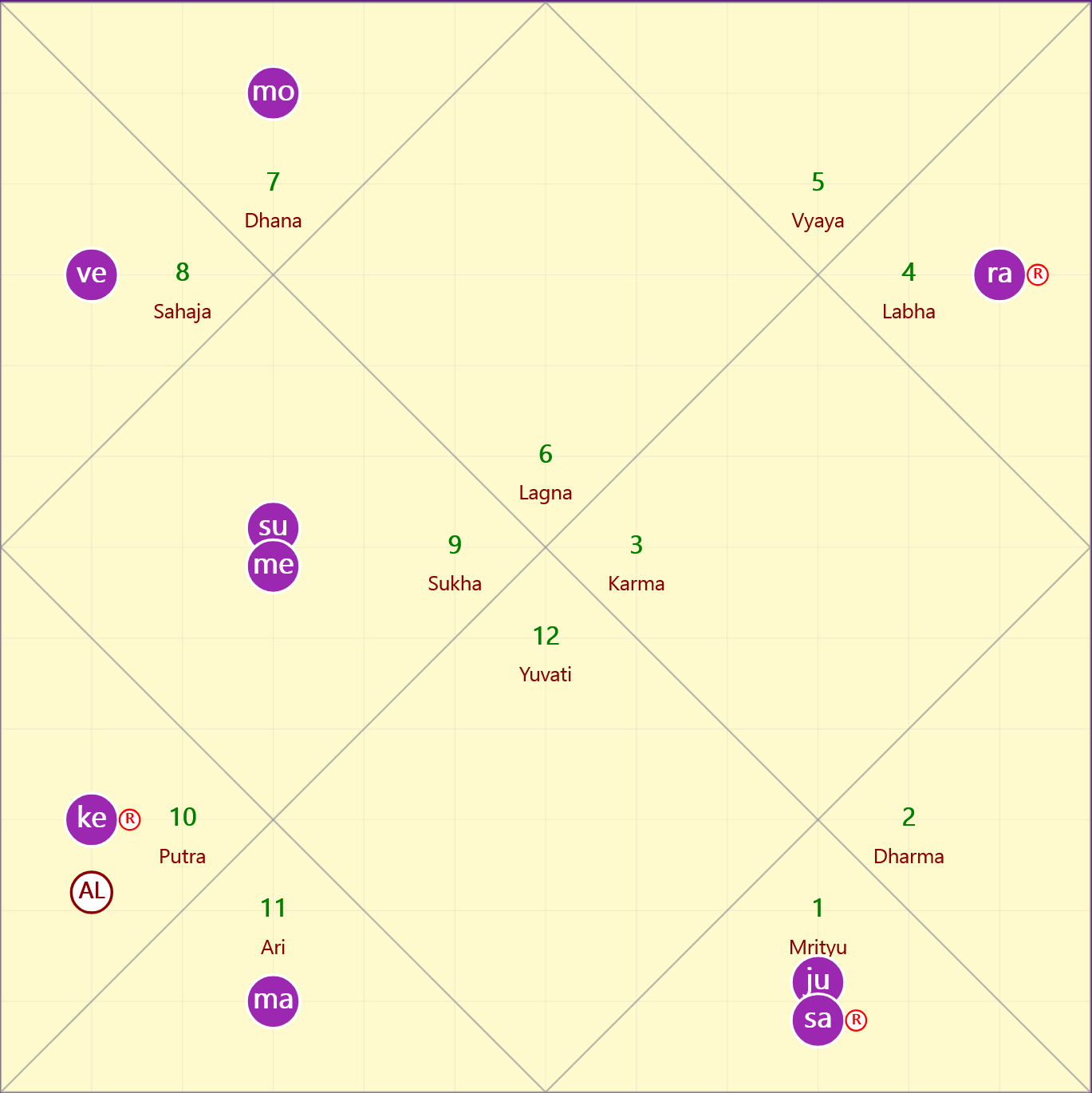
Gotra Dosha: Understanding Family Lineage Compatibility in Marriage
Introduction
In Vedic astrology and Hindu cultural traditions, the concept of gotra plays a pivotal role in assessing matrimonial compatibility. Gotra refers to the ancestral lineage or clan of a person, traced through the paternal line. The notion of Gotra Dosha arises when prospective partners belong to the same gotra, which classical texts warn can lead to adverse effects in marriage and progeny.
This article delves into the classical foundations of Gotra Dosha, referencing authoritative scriptures such as the Bṛhat Parāśara Horā Śāstra (BPHS), Manu Smṛti, and Kālikā Purāṇa. We will explore the verses, their interpretations, and how these ancient principles remain relevant in modern matrimonial practices.

What is Gotra Dosha?
Gotra Dosha refers to the dosha or fault that arises when a couple shares the same gotra. Since gotra is a marker of direct paternal lineage, marrying within the same gotra is considered akin to marrying a close relative, which is traditionally forbidden.
This dosha is believed to impact the health and longevity of children, marital harmony, and prosperity. The avoidance of same-gotra marriages is a preventive measure to maintain genetic diversity and social harmony.
Classical Verses on Gotra Dosha
1. From Bṛhat Parāśara Horā Śāstra (BPHS), Chapter 84:
Sanskrit Verse:
गोत्रसंबन्धो दोषो हि विवाहे निवारणीयः । अपि च पूतत्वं प्राणानाम् अनुवर्तते सदा ॥
Transliteration: Gotrasambandho doṣo hi vivāhe nivāraṇīyaḥ | Api ca pūtatvaṃ prāṇānām anuvartate sadā ||
Interpretation: Gotra-related dosha must be avoided in marriage as it affects the purity and vitality of offspring continuously.
2. Manu Smṛti, Chapter 9, Verse 3:
Sanskrit Verse:
समीपात्समग्रोतो विवाहः पापकृत् भवेत् ।
Transliteration: Samīpātsamagroto vivāhaḥ pāpakṛt bhavet |
Interpretation: Marriage between individuals of the same gotra is sinful and brings negative consequences.
3. Kālikā Purāṇa, Chapter 12:
Sanskrit Verse:
गोत्रेभ्यः समागमे न स्यात् संतानां हानिः सदा ।
Transliteration: Gotrebhyaḥ samāgame na syāt santānāṃ hāniḥ sadā |
Interpretation: Reunion within the same gotra always leads to harm in progeny.
4. BPHS, Chapter 84 (additional verse):
Sanskrit Verse:
न जातु गोत्रे त्वयोर्न विवाहः स्यात् पुमान् नरः ।
Transliteration: Na jātu gotre tvayorn vivāhaḥ syāt pumān naraḥ |
Interpretation: A man and woman of the same gotra should never marry.
5. Manu Smṛti, Chapter 9, Verse 93:
Sanskrit Verse:
गोत्रेभ्यः समागमे संतानां दुःखं जायते ।
Transliteration: Gotrebhyaḥ samāgame santānāṃ duḥkhaṃ jāyate |
Interpretation: Union within the same gotra results in suffering for the children.
Modern Interpretation of Gotra Dosha
While classical texts express concerns about same-gotra marriages, modern genetics supports the principle of avoiding close consanguineous unions to reduce genetic disorders. Gotra, as a marker of patrilineal descent, indirectly enforces this genetic diversity.
Moreover, the psychological and social dimensions of gotra compatibility aid in strengthening family bonds and cultural identity.
Nakshatra Analysis and Gotra Compatibility
Beyond gotra, the Moon's nakshatra (lunar mansion) placement influences personality and emotional temperament, which are crucial in marital harmony.
For example:
- A partner with Moon in Rohini Nakshatra tends to be affectionate and nurturing.
- Moon in Ashwini Nakshatra indicates energetic and dynamic traits.
Matching nakshatras alongside gotra compatibility provides a comprehensive horoscope analysis for marriage.
Practical Applications in Modern Matrimonial Context
- Verification of Gotra: Before marriage, families verify the gotras to avoid the dosha.
- Use of Astrological Tools: Horoscopes are matched considering gotra, nakshatra, and other doshas.
- Genetic Counseling: In some cases, genetic screening complements astrological checks.
- Rituals to Mitigate Dosha: If same gotra marriage occurs, gotra shuddhi or other rituals may be performed to neutralize dosha effects.
Case Study
A couple from the same gotra faced recurrent health issues in their children. Upon astrological consultation, the gotra dosha was identified as a factor. After performing prescribed remedies and ritual purification, subsequent children were healthier.
Conclusion
Gotra Dosha is a significant consideration in Vedic matrimonial astrology, rooted in preserving genetic integrity and social ethics. Classical scriptures provide clear injunctions against same-gotra marriages, supported by modern scientific understanding.
By integrating gotra checks with nakshatra analysis and contemporary genetic insights, families can ensure harmonious and prosperous marital unions.
Key Takeaways:
- Avoid marrying within the same gotra to prevent dosha.
- Combine gotra compatibility with nakshatra analysis for holistic matchmaking.
- Use classical wisdom alongside modern genetics for informed decisions.
References
- Bṛhat Parāśara Horā Śāstra, Chapter 84
- Manu Smṛti, Chapter 9
- Kālikā Purāṇa, Chapter 12
Tags: gotra dosha, family lineage, marriage, vedic-astrology, compatibility




